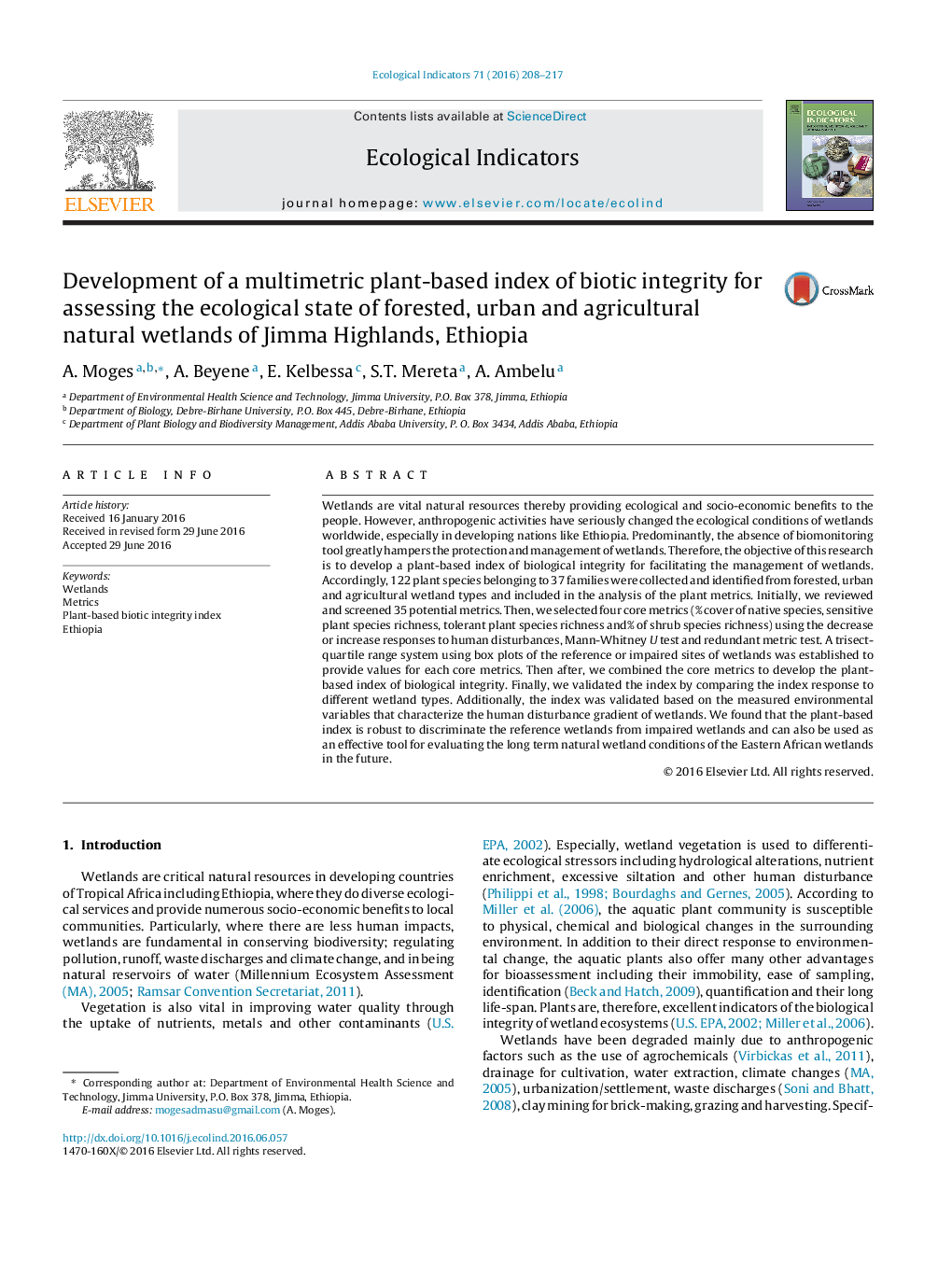| Article ID | Journal | Published Year | Pages | File Type |
|---|---|---|---|---|
| 6292931 | Ecological Indicators | 2016 | 10 Pages |
Abstract
Wetlands are vital natural resources thereby providing ecological and socio-economic benefits to the people. However, anthropogenic activities have seriously changed the ecological conditions of wetlands worldwide, especially in developing nations like Ethiopia. Predominantly, the absence of biomonitoring tool greatly hampers the protection and management of wetlands. Therefore, the objective of this research is to develop a plant-based index of biological integrity for facilitating the management of wetlands. Accordingly, 122 plant species belonging to 37 families were collected and identified from forested, urban and agricultural wetland types and included in the analysis of the plant metrics. Initially, we reviewed and screened 35 potential metrics. Then, we selected four core metrics (% cover of native species, sensitive plant species richness, tolerant plant species richness and% of shrub species richness) using the decrease or increase responses to human disturbances, Mann-Whitney U test and redundant metric test. A trisect-quartile range system using box plots of the reference or impaired sites of wetlands was established to provide values for each core metrics. Then after, we combined the core metrics to develop the plant-based index of biological integrity. Finally, we validated the index by comparing the index response to different wetland types. Additionally, the index was validated based on the measured environmental variables that characterize the human disturbance gradient of wetlands. We found that the plant-based index is robust to discriminate the reference wetlands from impaired wetlands and can also be used as an effective tool for evaluating the long term natural wetland conditions of the Eastern African wetlands in the future.
Related Topics
Life Sciences
Agricultural and Biological Sciences
Ecology, Evolution, Behavior and Systematics
Authors
A. Moges, A. Beyene, E. Kelbessa, S.T. Mereta, A. Ambelu,
